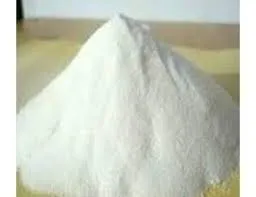
Nov . 07, 2024 05:58 Back to list
Hydroxyethyl Cellulose HEC Applications and Benefits in Various Industries
Hydroxyethyl Cellulose (HEC) Properties, Applications, and Benefits
Hydroxyethyl cellulose (HEC) is a non-ionic, water-soluble polymer derived from cellulose, a natural substance found in the cell walls of plants. As a derivative of cellulose, HEC possesses unique properties that make it valuable in a wide range of industrial and consumer applications. These include its roles in the pharmaceutical, cosmetic, food, and construction industries, among others.
Properties of Hydroxyethyl Cellulose
HEC is characterized by its ability to form viscous solutions when mixed with water. This property stems from its molecular structure, which includes hydroxyl ethyl groups that enhance its solubility and reactivity. The viscosity of HEC solutions can be adjusted by altering the concentration and molecular weight of the polymer, allowing for precise control over its performance in various applications.
One of the most remarkable properties of HEC is its non-ionic nature. Unlike ionic polymers, HEC does not interact with charged ions in solution, making it less sensitive to changes in pH and salt concentration. This stability under varying environmental conditions enhances its utility in various formulations.
HEC is also highly biodegradable, contributing to environmentally friendly practices in its production and application. This aspect has gained increasing importance as industries shift towards sustainable practices.
Applications of Hydroxyethyl Cellulose
1. Pharmaceuticals In the pharmaceutical industry, HEC is widely used as a thickening agent, binder, and stabilizer in various formulations, such as creams, gels, and ointments. Its ability to improve the viscosity of topical applications enhances the product's spreadability and stability. Additionally, HEC can function as a controlled release agent in drug formulations, allowing for prolonged therapeutic effects.
2. Cosmetics and Personal Care HEC is a popular ingredient in cosmetics and personal care products such as shampoos, conditioners, lotions, and creams. Its thickening properties help achieve the desired consistency, while its ability to form a film on the skin or hair aids in moisture retention. As a result, products containing HEC often provide an enhanced sensory experience.
hydroxyethyl cellulose hec

3. Food Industry In the food industry, Hydroxyethyl Cellulose serves as a food thickener and emulsifier. It is used in products like salad dressings, sauces, and dairy products to improve texture and stability. Additionally, HEC can be employed as a gluten substitute in gluten-free baked goods, helping to retain moisture and enhance the structure.
4. Construction In construction, HEC is commonly used in cement-based materials and tile adhesives. Its water-retention properties are crucial in ensuring that the mixture remains workable without drying out too quickly, allowing for better adhesion and workability. Moreover, HEC can enhance the overall durability and performance of construction materials.
Benefits of Using Hydroxyethyl Cellulose
The incorporation of HEC in various products offers numerous benefits. Its thickening and stabilizing properties are essential for achieving the desired texture and consistency in formulations. Furthermore, its ability to improve the spreadability of topical products leads to enhanced user satisfaction and efficacy.
HEC is relatively easy to incorporate into formulations, as it can be blended with other ingredients without negatively affecting their performance. This versatility allows formulators to create customized solutions tailored to specific needs.
In addition to its functional advantages, the use of HEC aligns with the growing demand for sustainable and environmentally friendly products. Its biodegradability ensures minimal environmental impact, making it an attractive choice for eco-conscious consumers and manufacturers.
Conclusion
Hydroxyethyl cellulose (HEC) is a versatile polymer with unique properties that facilitate its application across a diverse array of industries. Its ability to function as a thickening agent, stabilizer, and emulsifier makes it invaluable in pharmaceuticals, cosmetics, food, and construction. As industries increasingly seek sustainable solutions, HEC’s biodegradable nature positions it as a popular choice for the future, ensuring that its benefits will continue to be leveraged in innovative ways. Through ongoing research and development, the potential applications of Hydroxyethyl Cellulose are expected to expand further, enhancing its profile as a key ingredient in modern formulations.
-
The Widespread Application of Redispersible Powder in Construction and Building Materials
NewsMay.16,2025
-
The Widespread Application of Hpmc in the Detergent Industry
NewsMay.16,2025
-
The Main Applications of Hydroxyethyl Cellulose in Paints and Coatings
NewsMay.16,2025
-
Mortar Bonding Agent: the Key to Enhancing the Adhesion Between New and Old Mortar Layers and Between Mortar and Different Substrates
NewsMay.16,2025
-
HPMC: Application as a thickener and excipient
NewsMay.16,2025
-
Hec Cellulose Cellulose: Multi functional dispersants and high-efficiency thickeners
NewsMay.16,2025







